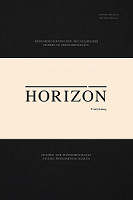DERRIDA’S OTHER TRANSCENDENTAL AESTHETIC
DERRIDA’S OTHER TRANSCENDENTAL AESTHETIC
Author(s): Carlos LoboSubject(s): Philosophy, Aesthetics, Structuralism and Post-Structuralism
Published by: Издательство Санкт-Петербургского государственного университета
Keywords: structure; group of transformation; relativity; coordinate system; intersubjectivity; space and time; body;
Summary/Abstract: By going back to the starting point of Derrida’s debates with some of the main representatives of structuralism in France, I propose to highlight the ambiguities that cover the very notion of structure, and to take the measure of the exact role that the reference to phenomenology plays then and will continue to play thereafter. Among these ambiguities: the one that touches the mathematical notion of structure, central in the triumphant structuralist mathematical current in France at that time; and especially: the one called “groups of transformations,” the most important one to understand at the same time the audacities and the impasses of structuralism. The hard core of mathematization of modern physics, with Galileo’s principle of relativity, then developed in a masterly way in Einstein’s theory of relativity rest on this very structure. After tracing the broad outlines of these initial discussions, we engage in an analysis of how it is possible to understand the “epistemological contemporaneity” of relativity theory and Husserl’s transcendental aesthetics. Based on a thorough exploration of the analyses of the intersubjective constitution of space, time and the objective common world, we identify this central structure that Husserl calls “intersubjective group of transformation.” Equipped with this phenomenological structure, we trace this motif in Derrida’s work. Its insistence allows us to understand how the phenomenological premises of his critique of structuralism can help to understand his theoretical positions, especially in contrast to Jean-Luc Nancy.
Journal: Horizon. Феноменологические исследования
- Issue Year: 12/2023
- Issue No: 1
- Page Range: 48-73
- Page Count: 26
- Language: English

